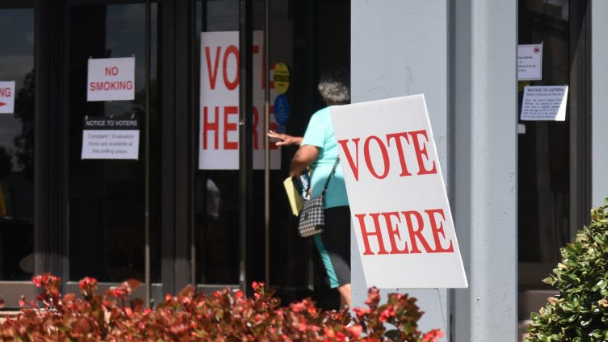Alabama voters go the polls Tuesday to vote in the midterm elections, but if history is a predictor, most eligible voters will sit this one out. Six out of 10 Alabama voters didn’t vote in 2014 when it was time to elect a governor, state lawmakers, and other key leaders.
Some people say voting is just not a priority.
Chance Dodd, 22, works in a Fultondale restaurant. He waits tables and makes sure the floors and tables are clean. He has two boys and for him, work is a priority; voting is not.
“I just don’t ever really think about doing it. It never really bothered me too much,” he says. “There’s plenty of people in this world to vote.”
Dodd has his reasons. For one, he doesn’t like the way America treats its veterans.
“We’ve got all these people here fighting overseas and everything and then we’ve got all these veterans around the streets,” Dodd says. “They’re more worried about getting the amigos back across the border instead of getting our wounded soldiers back home and taken care of.”
The percentage of registered voters is high in Alabama — more than 90 percent, according to the Alabama secretary of state. But in the last midterm election, turnout here was among the lowest it’s been in decades, a PBS report says.
Garrett Flanagan owns a hair salon in Cullman. The 26-year-old has no plans to vote next week. The last time he voted was for Mitt Romney in the 2016 Republican presidential primary.
“I don’t watch television. I forget what’s going on in the world, honestly,” Flanagan says. “My main focus in life is my business and living and staying healthy.”
UAB political scientist Angela Lewis says there are many reasons people don’t vote. Sometimes it’s because they lack confidence in the elections process, she says. That includes the hanging chads that mired the 2000 elections, and more recently, laws and practices that result in voter suppression.
“Then if you add some additional things like provisional ballots in Alabama, and some of those ballots possibly not being counted, there’s a lot reasons why people can come to the conclusion that they will not participate in the election,” she says.
Lewis says people should look at the bigger picture.
“They should think about it from the perspective of ‘I’m helping the good of the country,’” she says.
But voting for the good of the country isn’t a motivator for Mercutio Southall — anymore. The 34-year-old works as a security guard around Birmingham.
“The definition of insanity is doing the same thing over and over and expecting different results. We keeping on voting for people, and what is it really gaining us?,” he says. “If you look at the redlining the unemployment.”
He’s referring to the discriminatory lending practices dating back to the 1930s that hurt minority communities, and the higher unemployment rate among African Americans.
Southall helped launch Birmingham’s Black Lives Matter movement. He supported Bernie Sanders in the 2016 presidential race and says he still is disgusted with the Democrats’ handling of that election.
He was raised in Selma in a voting family, but he says his generation is being ignored.
“We were told to vote, like our whole lives,” Southall says. “And then when we did turn up to vote, I feel like America told our generation ‘well, yeah that’s what ya’ll said, but ya’ll don’t really know what ya’ll want for real, so this is what we’re going to do.’”
Southall says he’s not voting again until America moves beyond a two-party system, or politicians start keeping their promises. But Lewis, the political scientist says, voting can bring change.
Polls open at 7 a.m. November 6.

